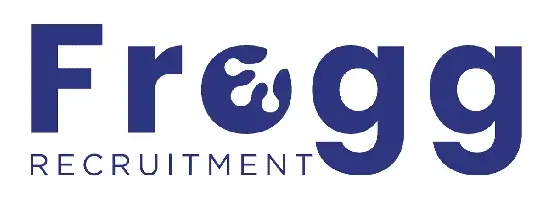Category: Blogs
-

How to write a CV/Resume
Continue ReadingHow to write a professional CV/Resume
You will find insightful information, tips, and guidance on how to write a CV/Resume in the article below. In today’s competitive job market, it’s essential to present a tactful and well-outlined resume. Are you looking for a FREE CV TEMPLATE?
Job Seekers should know how to apply to jobs they qualify for in the sense of requirements and job duties. Job seekers should read the job advertisement carefully and only apply if they are a match.
Know what a good CV entails and ensure your CV/resume is up to par. With the correct knowledge as to what a CV consists of, nothing can stop you from making one that stands out from the crowd. Click on this link to create your own CV
What to write in your CV (Curriculum Vitae) also known as a Resume.
Your CV, or resume outlines your qualifications to recruiters and prospective employers. This document includes details information about your persona, and professional background, education, accomplishments, and skills selling yourself as the most suitable candidate. It contains details about your persona, professional history, educational background, accomplishments, and skills. Click here to view this article on LINKEDIN
The steps below will serve as a guideline regarding how to write a CV/resume:
Personal information
Personal information includes your name, surname, date of birth, in addition to languages that you speak and your contact information such as your mobile number and email address so that employers who you are and how to reach you. Below your personal information, include a brief summary outlining your career and introducing yourself to the recruiter or employer. This is ultimately a very condensed version of what your cover letter would say.
Education
Ensure that you list your educational history, both secondary and tertiary on your CV. Education listed on your CV is always listed in reverse chronological order with your most recent educational qualifications first. Should your current qualification be a completed degree it will be listed first and secondary education would be the last high school you attended and graduated from. Should you be in the process of pursuing another qualification of sorts, that will be listed above your completed qualifications.
Relevant skills
Under the skills section of your CV, list any potential skills that apply to the potential job. This can be any skills that you have acquired acquired outside of your current or previous employment. Examples are software proficiencies like Microsoft Word, Excel, and PowerPoint etc. These are considered as part of the prerequisites or otherwise stated as minimum requirements. Try to include skills that relate to the job description to make yourself a more desirable candidate.
Attributes
A personality trait known as an attribute can enhance your ability to perform within a team or an as individual in a working environment. It is seen as a quality or feature regarded one’s character. It works to describe you as an individual who is passionate in sales and marketing, dedicated or loyal. Its works describe your strengths. It can also describe functional words like being strong in management, people skills, analytical, or technical aligned.
Employment history
It is important to detail your current employment and previous employment history so your prospective employer can see your career path and this is what determines whether you are fit for the business of your prospective employer. This can include; full-time and part-time employment, internships, research projects such as WIL (Will Integrated Learning), lab work, volunteer work, and/or field experience.
Employment history is also consistently listed in reverse chronological order, being your current or last position first, and is almost always listed in bullet point format. Here, you will list the title of the work, name and location of your current/previous place of employment. Below these titles, you will list your job responsibilities performed.
References
References are your former employers who you provide the contact information of so that they may attest to your character, abilities, and work performance. Recruiters use your references to double-check what you’ve written on your CV. Therefore, it is of utmost importance that you are honest as this reflects as part of your personality, character, and values.
If you want to find our more about what we do as one of the top staffing agencies, view Our Expertise. Feel free to follow us on our social pages Facebook, LinkedIn, Instagram
-

Why understanding company culture matters in your...
Continue ReadingWhy Understanding Company Culture Matters in Your Job Hunt.
Have you ever wondered why some people effortlessly land their dream jobs, while others struggle even to get a foot in the door? It’s not just about having an impressive profile or nailing the interview. There’s another crucial factor at play.
Understanding and aligning yourself with a company’s values, beliefs, and work environment.
Let’s delve into the fascinating world of company culture and discover how cultivating this understanding can pave your path toward lasting success.
Why Understanding Company Culture Matters in Your Job Hunt?
When you’re job hunting, take the time to understand the company culture of each potential employer. After all, the culture of a company can have a big impact on your overall satisfaction with your job.
If you’re not familiar with the term “company culture,” refers to the values, beliefs, and behaviors. Every company has its own unique culture, which is shaped by the founder’s vision, the values of the employees, and even the physical environment of the office.
And while there’s no single “right” company culture, there are definitely some cultures that are a better fit for certain personality types than others. You know what kind of environment you thrive in, you can use that knowledge to help you find a job that’s a good match for you.
For example, if you’re someone who likes to work independently and takes initiative on projects, you might do well in a company that has an entrepreneurial culture. On the other hand, if you prefer more structure and guidance in your work, you might be happier in a more traditional corporate setting.
Of course, it’s not always easy to tell what a company’s culture is like from the outside. But there are some things you can look for that will give you clues. For starters, check out the website and see if there’s any mention.
What is Company Culture?
When you’re job hunting, it’s not just about finding a position that matches your skills and experience. It’s also about finding a company whose culture is a good fit for your personality and values.
Company culture refers to the shared values, beliefs, and behaviours of the people who work at a company. It’s the “vibe” of an organization, and it can be a make-or-break factor in whether or not you enjoy working there. Some companies have a very relaxed culture, while others are more formal. Some promote a work-life balance, while others expect employees to put in long hours. There is no right or wrong answer when it comes to company culture. It’s just important that you find one that suits you.
To get an idea of what a company’s culture is like, do some research before your interview. Check out their website and social media accounts. Read employee reviews on sites like Facebook or LinkedIn, and see if you can talk to anyone who works there. Once you have a better understanding of the company culture, you can decide if it’s somewhere you would be happy working.
How to Understand and Evaluate Company Culture
When considering a new job, it’s important to evaluate the company culture to make sure it’s a good fit for you. There are a few key things to look for when understanding and evaluating company culture:
Do the values of the company align with your personal values?
What is the overall atmosphere like? Is it relaxed or formal?
Do employees seem happy and engaged with their work?
What kind of development opportunities are available?
Is there a strong sense of community within the company?
By taking the time to understand and evaluate company culture, you can be sure you’re making the right decision for your career.
Tools for Finding Information About a Company’s Culture
First, check out the company’s website and see what kind of language they use to describe their work environment. Do they talk about being collaborative, innovative, fast-paced, or customer-centric? This will give you some clues as to the kind of culture they value.
Next, take a look at any employee reviews that are available online. See what current and former employees have to say about the company culture. Pay attention to both the positive and negative comments to get a well-rounded picture. These reviews can be found on FROGG Recruitment.
Try reaching out to someone who works for the company or who has in the past. Ask them about their experience with the company culture and what they think makes it unique. This can give you some great insight that you wouldn’t be able to get from other sources.
Benefits of Working in a Positive Workplace Environment
When you’re job hunting, it’s important to pay attention to the culture of the companies you’re considering. A positive workplace environment can provide a number of benefits that lead to success in your career.
A positive workplace environment is one where employees feel supported and valued. They feel like they are able to do their best work without fear of retribution. Companies with this type of environment tend to have lower turnover rates. Employees are more likely to stick around when they feel happy in their jobs.
In addition, employees who feel supported by their company are more productive. They take fewer sick days and are less likely to call in late or leave early. When employees feel like their work is appreciated, they’re more likely to go above and beyond.
Companies with positive workplace environments are typically more successful overall. This is because happy employees lead to satisfied customers, which leads to repeat business and increased profits. It’s a cycle that starts with creating a supportive environment for your employees.
Challenges of Working in a Negative Workplace Environment
Working in a negative workplace environment can be challenging for a number of reasons. First, it can be difficult to stay motivated when the people around you are unhappy and unfulfilled.
Second, it can be easy to get caught up in the negative energy and start to see everything in a negative light. It can be tough to maintain your positive attitude and remain productive when the people around you are constantly complaining and bringing everyone down.
If you find yourself in a negative workplace environment, it is important to remember that it is not personal and that you can still be successful if you remain positive and focused on your goals.
Conclusion
Understanding company culture is an integral part of any successful job hunt. While many people focus on the skills and qualifications that they bring to a position. The importance of how those abilities will fit within a company’s existing culture should not be overlooked. Doing your research before applying for a job can help you determine if an organization’s values are in line with your own, while also giving you insight into how well you may fit within its team dynamic. By taking this step, you can increase your chances of finding the perfect workplace for yourself and cultivating long-term success in your career.
If you want to find more about what we do as one of the top recruitment agencies, view Our Expertise. Feel free to follow us on Facebook, LinkedIn and Instagram
-

Difference between contingent and retained recruitment?
Continue ReadingWhat is the difference between contingent and retained recruitment?
Here at FROGG Recruitment, we specialize in Contingent recruitment. Contingent recruitment is more like traditional where the client supplies job specs and we do the recruitment.
How FROGG Recruitment can assist you as a valuable client.
The services we offer include the following but are not limited:
We recruit permanent and contract employees within various industries and sectors.
We work accordingly to your brief, job requirements, and skills, saving even more time.
They handle all the administration and communication between the employer and employee.
They can do all the checks like ITC, qualification, criminal, and employment
We can even arrange for more specialized checks and assessments.
They’re a trusted source of up-to-date market intelligence if it comes to market-related salaries.
As a reputable recruitment agency, we will also do all advertising, shortlisting, and interviewing.
We will only submit relevant applicants who match your job requirements.
You have the final decision on who you employ, it’s all up to you. We can only advise.
The recruitment and appointment process progresses efficiently. We work on a contingent recruitment service which means you pay when the candidate starts.
They offer exceptional after-service, meaning we continue to grow and build client relationships.
Finding a quality candidate who’s a great fit for your BUSINESS can often be a time-consuming task. There are a variety of recruiting agencies available to handle this responsibility for you. Learn what contingency and retained recruiting are. Discover the difference between the two, and review tips to help you decide which is right for your business.
Contingency recruiting involves hiring a recruiting firm to locate candidates to fill lower to mid-level open roles. Companies may hire more than one contingency recruiting firm to help quickly find a great fit for the position. They often do this to obtain several resumes for the role. To give themselves plenty to choose from or to hire several people to fill certain positions.
For instance, if a company’s looking to fill five content writer positions. They’ll hire several contingency recruiting firms to find many potential candidates to fill all the open spots. The company’s human resources team may also conduct their own recruitment efforts to ensure they’re reaching a wide audience.
What is retained recruiting? How is it different from Contingent recruitment?
Retained recruiting refers to retained search agencies that often recruit for executive and senior-level roles. Additionally, many of these recruiters are expected to have advanced knowledge of the industry they’re in to better understand what the company needs in a great employee. Moreover, these recruiting firms often charge a placement fee based on the annual salary their candidate receives when they’re hired. Furthermore, the fee amount varies depending on the expert level of the recruiting firm and recruiter you work with.
To ensure your employees are well-trained and prepared for their new role, some retained recruiting firms also provide coaching, training, and onboarding training sessions. This ensures the employee is more aware of their job duties by their first day and removes this responsibility from your HR team to allow them to focus on big-picture tasks. Retained recruiting firms work on an exclusive basis, so they’re the only recruiting company you’re allowed to work with.
Differences between contingency and retained recruiters
There are various differences between contingency and retained recruiting firms. Common differences include:
Payment methods
Each of these recruiting firms follows different procedures when it comes to charging for their time. Contingency search firms typically recruit for your company for free and don’t receive payment for their work until their candidate is hired. This usually means they’ll work hard to provide you with many candidates at once to increase the chances of you selecting their selections.
Payment for Retained Recruitment – There are usually three sections of payment you’ll make to retained recruiting agencies. The first is the retainer you’ll pay when the search first begins. The next is on a certain milestone date that you agree on with the recruiter beforehand. Your final payment is provided when the candidate is successfully hired at your company. If the new hire leaves before an agreed-upon date between you and the recruiter, they offer a guarantee to replace that candidate with someone who has similar or more advanced skill sets. We do Contingent recruitment services and not retained recruitment, a big difference in paying invoices.
Relationship with the company
When you work with a retained recruiting agency, you’re essentially establishing a long-term relationship with them. Many retained recruiting firms require companies to sign an exclusivity form stating that they’ll only work with their agency to find and hire new candidates. They’ll take their time getting to know your company, industry, and hiring needs better to find the best candidates for you.
If you hire contingency firms, you typically have the option to employ several different ones to increase your influx of qualified candidates. This means the contingency firm usually works briefly with you to establish your needs and preferences for the role before finding several potential candidates. They don’t often have a close relationship with you, so you’re able to easily move on to a different firm once your job search process is over.
Quantity vs. quality
Retained recruiting agencies are more focused on finding a handful of quality employees who are perfect for the role. They spend a significant amount of time evaluating your business’ needs, locating talented candidates, and preparing candidates for their upcoming interview with you. This guarantees you’ll find an impressive candidate who aligns well with your company goals, values, and job responsibilities.
Contingency firms focus more on getting you a large number of candidates who could potentially be great fits for the position. Many of these recruiters review the needs and preferences listed on your job descriptions and find candidates with resumes that contain a few keywords matching that information. This helps them provide you with a significant amount of candidates with relevant skill sets and qualifications, but it doesn’t guarantee that these candidates are great fits for the position and company.
Tips for considering which type of recruiter is right for your business
Follow these tips to help you determine which recruiting agency to hire to help you fill your open positions:
Determine your job search goals
Before you pick a firm, sit down with your team to determine your company’s recruitment goals. If your organization is smaller and doesn’t yet need to hire a significant number of employees, contingency recruiting could be the best temporary option for you. If you have multiple positions to hire on an ongoing basis as your business grows, consider using a retained recruiter. They’ll work to build a relationship with you and will recruit strong talent when needed.
Consider the seniority level of the position
If you’re searching for a candidate with an advanced skill set who will work in an executive or leadership role, retained recruiting is the best option. They’ll conduct extensive research on candidates with impressive leadership skills and plenty of experience. This ensures you hire an impressive candidate who will make logical and effective big-picture decisions for your company. For lower to mid-level positions, consider hiring a contingency firm to help fill them.
Establish your timeline and urgency of the role
Think about how soon you’d like to fill your open positions. If you have urgent tasks that need to be completed soon for your company, a contingency recruiter will help you quickly find someone with the skill set to complete those tasks. Work with a retained recruiter if you have plenty of time to assess candidates and make sure the one you’re hiring is perfect for the role.
Decide how many employees you need to hire
Contingency recruiters are great at finding several candidates to fill your open positions. If you have multiple roles that need you need to fill soon or if you’d like a large selection of qualified candidates to choose from, find a few contingency recruiters with great ratings to assist you in this job search.
Finding the best recruiting firm for your company depends solely on the hiring needs and preferences of your organization. To help you get started, work closely with department managers who have positions they need to fill to determine what they prefer in an ideal candidate.
If you want to find more about what we do, view Our Expertise. Follow us on our Social pages Facebook , LinkedIn and Instagram and be actively involved in newsletters and recruitment blogs.
-

Unique interview questions to ask potential employers
Continue ReadingUnique Interview Questions to Ask Potential Employers.
What are some unique interview questions to ask potential employers during the interview? So, job interviews are normally a two-way street where both the employer and the jobseeker try to understand if they are the right fit for each other or not.
10 Unique Interview Questions to Ask Potential Employers
Can You Describe a Typical Day in the Life of An Employee in This Role?
This question offers a glimpse into the daily responsibilities and tasks associated with the job role. This unique routine can help you visualize whether the role aligns with your skills and interests.
2. How Does the Company Support Professional Growth and Development?
Inquiring about professional growth opportunities demonstrates your commitment to continuous improvement.
3. What Qualities Have Led to Success Within the Team or Department?
Another unique interview question that you need to ask the employer is one that reveals the traits that the organization values and rewards. This allows you to assess whether your strengths align with what the employer considers essential for success.
4. How Does The Company Promote Work-Life Balance?
As work-life balance becomes increasingly important, this question signals your concern for maintaining a healthy equilibrium.
5. Can You Share a Recent Example of How the Company Responded to a Challenge?
Another question that delves into the company’s problem-solving approach and compliance. Also, it showcases your interest in understanding how the company navigates obstacles
6. What Are the Most Exciting Projects the Team Is Currently Working On?
Enquiring about ongoing projects demonstrates your eagerness to contribute. Because it also helps you evaluate whether the company’s initiatives align with your professional goals or not.
7. How Does the Company Foster Diversity and Inclusion in the Workplace?
Unique interview questions to ask the hiring manager after the interview. Diversity and inclusion are vital indicators of a progressive workplace. Asking this question demonstrates your commitment to a diverse work environment and highlights the company’s values
8. What Does Success Look Like for Someone in This Role After Six Months?
Smart questions to ask in an interview from our employer, this question provides clarity on performance expectations and timelines. It reveals whether the company has a well-defined vision for new hires’ success.
How To Talk What Is Weakness For Job Interview?
9. How Does the Company Keep Employees Engaged and Motivated?
Unique questions to ask the interviewee, because employee engagement is crucial for productivity and job satisfaction. Inquiring about engagement strategies underscores your interest in being a proactive and motivated team member.
10. What Sets Your Company Apart from Competitors in the Industry?
This is another killer question to ask at the end of an interview. This question allows the employer to highlight the company’s unique value proposition. It also demonstrates your intention to align yourself with an organization that stands out.
Conclusion
Asking unique and thought-provoking questions during a job interview serves multiple purposes. It showcases your genuine interest in the company, supports you in assessing the organization’s culture, and empowers you to make an informed decision about your potential future. These questions also provide you with an opportunity to stand out as a candidate who is not only well-prepared but also deeply invested in finding the right fit. So, the next time you are in an interview, don’t hesitate to pose these unconventional questions and embark on a journey of mutual discovery. So, above are unique interview questions to ask your potential employers. If you want to find out more about what we do as one of the top employment agencies, view Our Expertise.
Follow our social pages and find out about more open vacancies LinkedIn and Facebook
-

Impressive questions to ask during an interview
Continue ReadingIMPRESSIVE INTERVIEW QUESTIONS TO ASK DURING AN INTERVIEW
Who will be in the interview, and will they ask difficult questions to trick me? The answer is not necessarily to trick you but to get to know you. How long will the interview be, and what kind of questions will be asked? Read this blog about impressive interview questions to ask during an interview. How will the interview be conducted? A lot of questions make you nervous, yes it does. Important to remember is that it’s natural and normal to be nervous. Now all that stands between you and the job you want is being able to answer the interviewers’ questions, right? Furthermore, we will talk about impressive interview questions to ask during an interview.
Jobseekers forget that a job interview isn’t just a chance for the hiring manager to decide whether you’re the right fit for the job. It’s also a chance for you to find out whether the company you’re interviewing with is the right fit for you. To gather that information, you are going to need to make a list of impressive interview questions to ask during an interview.
Ask the right questions
Asking the right questions will help you decide whether you’d be happy in the role you are interviewing for and whether the company is a good fit for you. More importantly, asking questions about the role shows enthusiasm. If you have no questions, you could come off as uninterested.
Competitive job markets
In a competitive job market, you must take every opportunity to make yourself memorable and increase your perceived value in an interview. Firstly, find out what matters most to the hiring manager. When invited to ask questions, it is crucial that you ask them. Therefore, have your list of questions ready. Additionally, do your research and have those impressive interview questions to ask during an interview ready. Furthermore, I’d recommend having at least four or five of your own questions ready to ask during the job interview. Moreover, some of the answers might be given to you during the interview, so always make sure you have a few extra questions prepared.
Never ask about salary or benefits in the first interview (it leaves an impression that you are only interested in earning a higher salary). Depending on your salary expectations, you should be asked about your salary expectations before your interview to ensure it’s not a waste of time for you In addition, never ask basic questions about the company that could be answered just by looking at its website. By doing so, it will make it clear that you haven’t done your research. Therefore, interview preparation is KEY!!!
Instead, impress the interviewer with some prepared questions that get to the heart of the role.
Taking the time to prepare these questions serves four main purposes:
To learn more about the specific needs of the company and the hiring manager.
To demonstrate that you’re truly interested in the position.
To learn about the corporate culture and the company.
To uncover and discuss any concerns the hiring manager might have about your candidacy.
To ensure that YOU feel comfortable in possibly joining the company.
To ensure that YOU join a company with the right culture fit.
Learn to look beyond the job title/salary and what you think that role should entail. Find out what specific problems the company is dealing with so that you can explain how you’ve handled similar problems in the past.
Research the company extensively before the interview so that you can intelligently discuss its products and services. Remember, it’s not always the most qualified candidate who gets the job. Sometimes it goes to the most enthusiastic person.
Here are examples of interview questions to ask at your next interview:
Interview questions to ask about the job:
What does a typical day/week look like?
What are the main priorities of the role?
What are the skills and experiences an ideal candidate would have?
Is this a new role or a replacement?
Interview questions to ask about their expectations:
What do you expect your new hire to achieve in the first three to six months on the job?
How will my performance be measured in this role?
What is the official performance review process like at your company?
What is the most important and pressing problem for this new person to tackle?
What could the person who gets this job do differently than their predecessor?
Interview questions to ask about the company and its culture:
I’ve read about your recent acquisition/merger/IPO. Can you tell me more about how it will impact the organization?
How would you describe the work environment here?
Can you discuss your take on the company’s corporate culture?
How would you describe the company’s values?
Interview questions to ask about training and professional development:
What training opportunities are available to your employees?
Are there opportunities for advancement or professional development?
Why have employees previously in this role decided to move on?
Is there a formal process for advancement within the organization?
What is the organization’s policy on transfers to other divisions or other offices?
Are lateral or rotational job moves available?
Interview questions to ask about the team:
Can you tell me about the team I’ll be working with?
Can you share any information about my direct reports? What are their strengths?
What are the team’s biggest challenges?
Which other teams/stakeholders does this team interact with most?
Interview questions to ask about the interviewer:
How long have you been with the company?
What do you enjoy the most/the least about working here?
Why did you decide to join this company?
Interview questions to ask about the next steps:
What is the next step in the interview process?
When are you hoping to fill this role?
Do you have any additional questions or concerns regarding my candidacy that I could address for you before I go?
At the end of the interview, thank the interviewer for his or her time, express your interest, and determine the next steps in the hiring process.
Final Thoughts on Job Interviewing Success
In a competitive job market, you must take every opportunity to make yourself memorable and increase your perceived value. First of all, find out what matters most to the hiring manager. When invited to ask questions, ASK THEM! In fact, there’s a reason why we are providing you with impressive interview questions to ask during an interview. So, do your research and make those questions count.
Additionally, by asking relevant questions, you can demonstrate your interest and knowledge in the company. Moreover, it allows you to gather important information that can help you make an informed decision if you receive a job offer. Furthermore, asking thoughtful questions can leave a lasting impression on the hiring manager and set you apart from other candidates. Lastly, don’t be afraid to ask follow-up questions or seek clarification on any points discussed during the interview. If you want to find out more about what we do as recruiters as one of the top recruitment agencies, view Our Expertise.
Please share a comment or feel free to post a comment on our social pages Facebook, LinkedIn and Instagram.
